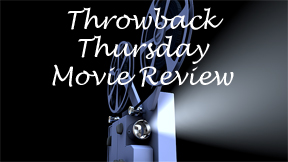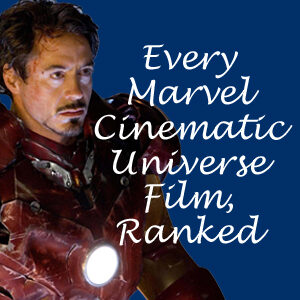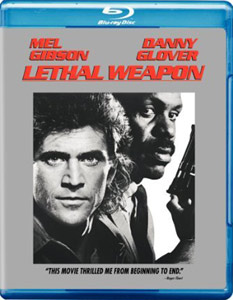“Lethal Weapon” (1987) introduced the masses to writer Shane Black (and his penchant for setting his films at Christmastime) and gave director Richard Donner a fresh franchise after being rudely booted off “Superman II” (1981). And while it didn’t launch the buddy cop trope (1982’s “48 Hrs.” often gets credit for that), it’s perhaps the most shining example.
Early example of Black’s skills
Black would later perfect his style of mixing subversion and laughs into a serious mystery actioner in “Kiss Kiss Bang Bang” (2005) and “The Nice Guys” (2017). But “Lethal Weapon” remains striking for how the writer mixes styles. Police detectives Roger Murtaugh (Danny Glover) and Martin Riggs (Mel Gibson) investigate a powerful heroin-dealing organization, but that’s really just the foundation for Riggs escaping suicidal thoughts through obsession with his job.
Gibson, already an action star from the “Mad Max” films, elevates Black’s writing. Consider the almost wordless scene where Riggs sticks a gun at his forehead and then into his mouth. The actor makes our heart break over a rather cliched one-line character description: Riggs feels like he can’t go on living after the (off-screen) death of his wife in a car accident.

“Lethal Weapon” (1987)
Director: Richard Donner
Writers: Shane Black, Jeffrey Boam
Stars: Mel Gibson, Danny Glover, Gary Busey
Gibson walks the line between Riggs’ craziness and savviness in a number of sequences where his (perhaps literally) insane behavior saves the day. By acting nuts and genuinely not caring if he dies, Riggs turns the tables on a man holding a gun to his head in a standoff, and he later handcuffs himself to a roof-jumper.
Glover is the steadying force, the “straight man” if this were a straightforward comedy. Murtaugh invites Riggs over for dinner with his (normal, functional) family in a buddy-cop standard that would later be seen in “True Detective” Season 1. Now, in addition to the job, Riggs has a friend and an example of normalcy in his life.
While “Lethal Weapon” pays lip service to giving Riggs professional psychiatric treatment (“Roswell’s” Mary Ellen Trainor plays the police psychologist), it’s ultimately the events of the film that “cure” Riggs. That’s a time-capsule moment; today we’d say the movie doesn’t give enough credence to the importance of professional treatment. And the idea of medication doesn’t come up at all.
Time capsule of Riggs’ bigotry
Riggs’ bigotry is also a 1987 moment. It’s not aimed against blacks, fortunately (considering Murtaugh’s race), but against gays. When the partners theorize that a victim was tricked by a lesbian lover, Riggs describes it as “gross,” and when Murtaugh smothers him to put out his coat that’s on fire, Riggs asks if he’s a “fag.”
“Lethal Weapon” isn’t driven by its villains, but Gary Busey gives a nice turn as henchman Joshua, simply because he has a villain’s face, something that serves him well in his acting career. The film’s final action scene is over the top, even by its own standards, as Riggs chooses to fight Joshua in hand-to-hand combat in the rain and mud rather than simply handcuff him and wrap up the case and the movie.

This case should be more personal to Murtaugh, since his daughter Rianne (Traci Wolfe) is kidnapped at one point, but Murtaugh cedes the grand finale to his partner, as if Riggs needs to shake out his last bit of craziness.
While “Lethal Weapon” isn’t loaded with complex action sequences, Donner delivers many memorable images, including a woman leaping to her death in the opening-credits moment, and a meeting in the middle of a vast open desert between heroes and villains.
Christmas theme sneaks in
My favorite Christmas-themed shot finds Riggs and Murtaugh discussing how they will rescue Rianne, and realizing that they will have to aggressively take her, because the bad guys won’t make an honorable trade. The Murtaugh family room is lit only by Christmas tree lights, so the grim topic brings out the moody side of the season.
The film doesn’t boast a catchy music number like “Beverly Hills Cop” or “Bad Boys,” but it has an appealing sax-driven score by Eric Clapton and Michael Kamen. In an amusing that’s-so-Eighties touch, Honeymoon Suite delivers a song called “Lethal Weapon” to close out a soundtrack otherwise dominated by Christmas tunes. Contrasting the holiday music is Stephen Goldblatt’s cinematogrpahy that showcases L.A.’s daytime sun and nighttime dirty streets.
“Lethal Weapon” hit theaters as a non-traditional Christmas movie a year before the more-celebrated “Die Hard.” Both are action classics, but a strong case could be made that “Lethal Weapon” doesn’t deserve to be overshadowed. It’s less tense and bloody, but it’s the more fun of the two films thanks to the interplay between Glover and Gibson through the pen of Black.

